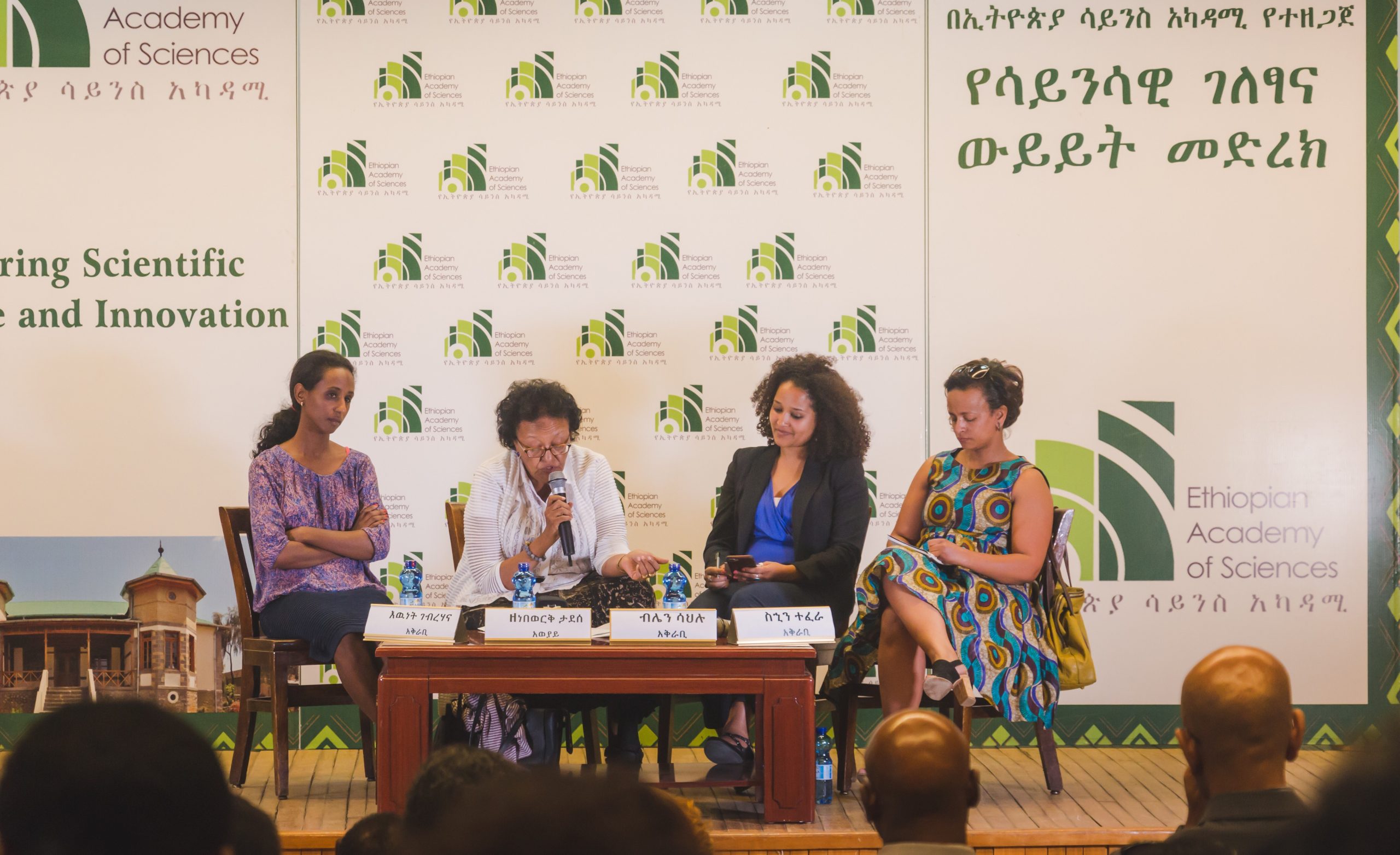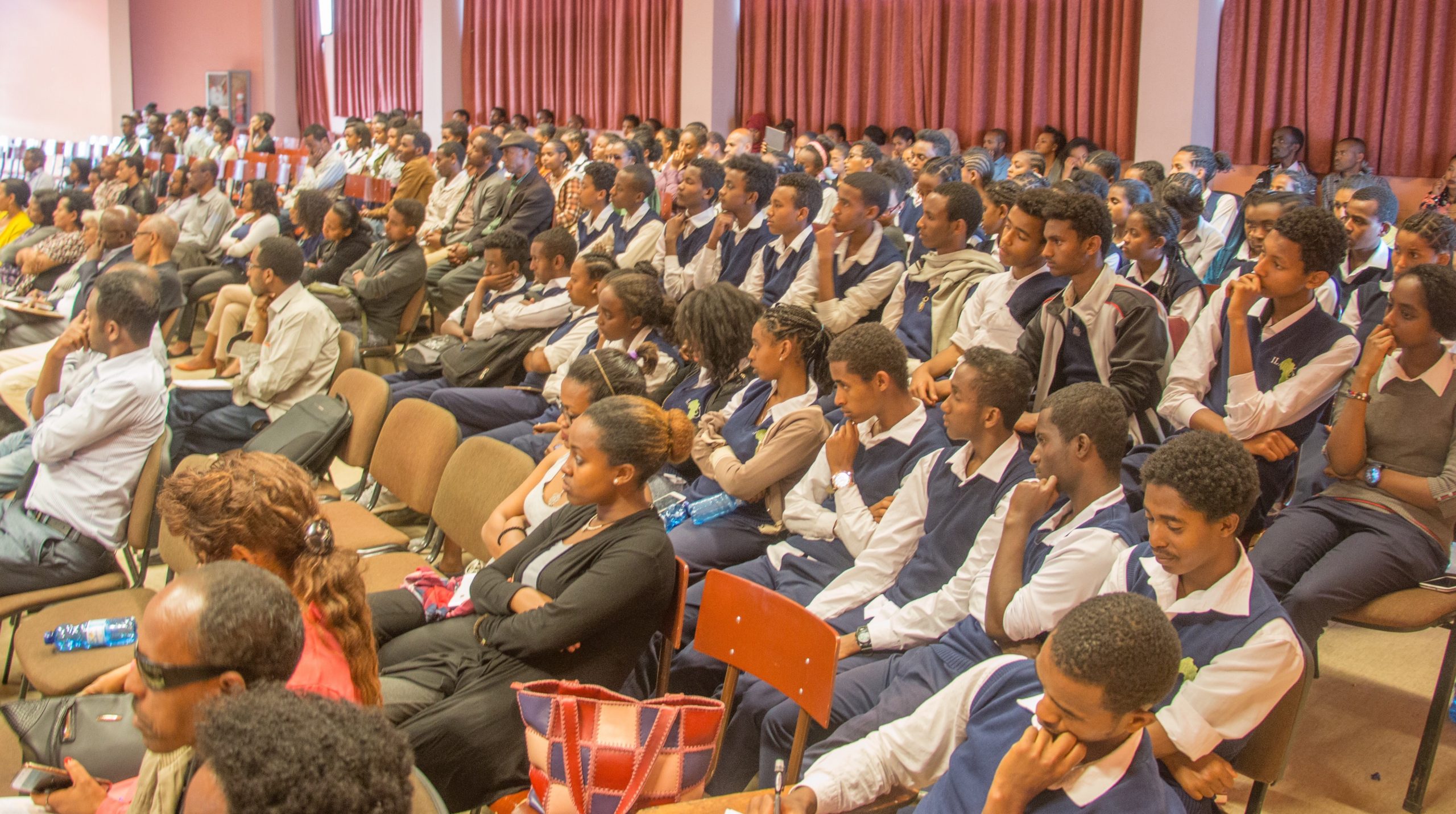Meti Bekele
Guest Author, Senior Project Officer, Ethiopian Academy of Sciences

May 11, 2018
Guest Author, Senior Project Officer, Ethiopian Academy of Sciences
On March 8, 2018, the Ethiopian Academy of Sciences (EAS), in partnership with Population Reference Bureau, celebrated International Women’s Day in Addis Ababa with a roundtable discussion on social norms and gender inequality in Ethiopia. As Ethiopia enters a demographic transition and its age structure matures, we must prioritize gender inequality and its implications for achieving the dividend. The demographic dividend is the accelerated economic growth that can occur as a population age structure (the proportionate numbers of persons in successive age categories in a population) matures, given strategic investments in health, education, economic policy, and governance. The roundtable was moderated by Zenebework Tadesse, EAS principal vice president. Speakers Sehin Teferra, cofounder and managing partner of the Setaweet movement; Blen Sahilu, lawyer and women’s rights activist; and Ewenat Gebrehana, reproductive health expert, discussed the different ways that social norms relate to gender inequality in Ethiopia.

The Ethiopian Academy of Sciences and Population Reference Bureau hosted, from left to right, speaker Ewenat Gebrehanna, moderator Zenebework Tadesse, and speakers Blen Sahilu and Sehin Teferra in a discussion of social norms and gender inequality in Ethiopia.
Sehin Teferra discussed the need to investigate the role of language in gender, explaining that language shapes and reflects peoples’ outlooks and actions. Biased language is embedded in casual communication across major Ethiopian languages, including feminized insults and idiomatic expressions that compare women with animals. Such language reinforces negative stereotypes and portrays gender-based violence (GBV) as acceptable and sometimes necessary.
Despite improved policy frameworks in some areas, biased language conveys damaging attitudes toward women that places many on lower social, economic, and professional footing than their male counterparts. Meaningful progress toward gender equality in Ethiopia requires us to question and deconstruct elements of Ethiopian languages that reinforce harmful attitudes toward women.
Ewenat Gebrehana considered how gendered expectations impact women’s sexual and reproductive health. The criminalization of child marriage and passage of a relatively lenient abortion law illustrate the progress made in designing legislative frameworks to improve women’s health. Yet many Ethiopians continue to practice early marriage, indicating that we need to make more progress. The Ethiopian Demographic and Health Survey (EDHS) 2016 shows that women’s median age at first marriage is 17.1 years (15.7 years among women in the Amhara region), while it is 23.7 for men.
Expectations about how a “good girl” should behave, sociocultural perceptions about women not having children, and double standards associated with sexually transmitted infections often discourage women from seeking sexual and reproductive health services. Additionally, health care service providers are not always free of biased gendered expectations, and many girls and women keep unwanted pregnancies or secretly undergo unsafe abortion for fear of judgment and the consequences of deviating from the norm.
Blen Sahilu noted that we can glimpse how most Ethiopian societies view women through collective responses to GBV—it usually takes extreme incidents of violence for people to discuss and condemn GBV. Even in cases like the gang rape and death of Hana Lalango, the collective condemnation was riddled with rhetorical questions (How could this happen? Who would do such a thing?). These reactions relieve society of accountability by distancing the perpetrators and viewing the violence as isolated. But violence against women is not a rare occurrence. EDHS 2016 shows that 23 percent of Ethiopian women ages 15 to 49 have experienced physical violence, while 10 percent have experienced sexual violence.
GBV, regardless of its form, does not happen in a vacuum. Internalized norms about masculinity and femininity delivered by the family, media, and other sources enable GBV. By acknowledging this link, we can encourage reflection on our role, as individuals and society, in creating a safe environment for girls and women.
 Roundtable participants listened to the discussion and contributed suggestions on ways to act to strengthen gender equality in Ethiopia.
Roundtable participants listened to the discussion and contributed suggestions on ways to act to strengthen gender equality in Ethiopia.
The roundtable speakers and participants highlighted the need to act in several ways to achieve meaningful progress toward gender equality in Ethiopia:
The roundtable convened members of academia, students, governmental and nongovernmental stakeholders, and interested individuals for a lively and nuanced discussion on gender equality. As the demographic dividend garners more attention in Ethiopia, such discussions broaden people’s understanding and advance the dialogue by serving as platforms for sharing, contextualizing, and building on research findings.
